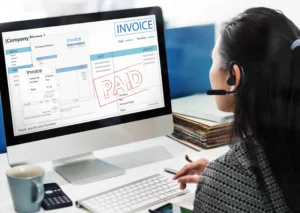Meanwhile, as a primary step, the automotive businesses can use this blog to enlighten themselves with major VAT aspects related to the sale of cars within the UAE. This article is based on the VAT Guide on Automotive Sector (VAT GAM1) released by the Federal Tax Authority (FTA) in June 2021. Read ahead to know more about the VAT treatment of the sale of cars within the UAE.
VAT Consideration for Outright Sales of Cars
Outright sales are one of the simplest ways of selling cars within the UAE. It happens when the customer has ready resources or borrowed funds from a financial institution to purchase the car outright. In this case, the supply of cars is subject to VAT at the rate of 5%. The date of supply is triggered by any of the earlier one of the following events:
- Date in which car is transferred to the customer
- Date in which customer took possession of the vehicle
- Date of receipt of payment or date in which tax invoice is issued
A tax invoice must be issued within 14 days from the date of supply and it must be delivered to the customer. If any amount is charged as a disbursement on behalf of a government entity (RTA e.g.), it must be identified on the tax invoice and VAT should not be charged on this amount.
Date of Supply of Outright Sales on Periodic Payments
If the contract for outright sales of the car involves periodic payments, the date of supply should be any of the earlier one of the following, provided it does not exceed one year from the provision of the car:
- The date on which tax invoice is issued
- The date on which payment is due as shown in the invoice
- The date of receipt of payment
Car Sales on Hire-Purchase Arrangement
If the car is sold as part of a hire-purchase arrangement, two separate supplies take place. The first supply is by the car seller to the finance company and the second is by the finance company to the customer. Let’s take a look at the VAT liability on two of these instances separately.
a.) VAT Liability on Motor Vehicle Trader
The car seller must issue a tax invoice to the finance company and account for VAT on the sales price of the car. VAT consultants in Dubai can help the traders get a clear picture of their VAT liability.
b.) VAT Liability on Finance Company
The finance company is also required to issue tax invoices to the customer, which generally have two components: hire instalments that are subject to VAT in the UAE and interest amounts that are exempt from VAT. If the finance charge is included in the total amount the customer is required to pay in instalments, then the total payable amount will be liable to VAT. This is because the amount is subject to the same VAT treatment as the car.
Repossession of Cars under Hire Purchase Arrangement
Under a hire purchase arrangement, a customer gets a right to use the car from the finance company. At the end of the hire period, the ownership transfers from the finance company to the customer. However, the finance company can repossess the car from the customer before the end of the hire period. This usually happens when the customer makes defaults on payments.
In such a scenario, the customer’s right to use the car ceases. When a finance company repossesses a car before the expiry of the hire period, no supply takes place for VAT purposes and no VAT implications arise. The normal VAT implications arise if the finance company further supplies the car to another customer.
VAT Treatment on Trade-in of an old car for a new car
This relates to the common practice where a customer trade-in an old car for a new one. In this case, two separate supplies occur; the sale of the new car to the customer and the customer’s sale of the old car to the motor vehicle trader. In the first case, the car trader is required to account for VAT on the sales price of the new car. While computing the amount of VAT on the sale of a new car, the car trader must not net off the trade-in value of the old car against the sales price of the new car.
The same position applies to ‘trade-in over allowances’ where a car trader agrees to buy an old car for a value higher than the market value. In such a case also, while accounting for VAT on the new car, the car trader must not net off the trade-in value (including the over allowance) of the old car. VAT consultants in Dubai can help car traders in dealing with VAT implications when a trade-in occurs.
The mandate of Price Display of Cars
The FTA says that the motor vehicle traders should display, advertise or publish or quote the VAT-inclusive prices when they sell cars. For example, if the price of the car is AED 100,000 and the VAT applicable on the sale is AED 5,000, the seller should advertise the price as AED 105,000, stating that the price includes VAT. This requirement doesn’t apply in the following case,
- When the supply of cars is an export
- The customer is registered for VAT in the UAE
Sale of cars to foreign governments, international organisations, diplomatic bodies
The sale of cars to foreign governments, international organisations, diplomatic bodies and missions, or an official is also subject to VAT at 5%. The foreign governments, international organisations, diplomatic bodies, missions or an official, however, can seek a refund.
VAT on sale of used/ pre-owned cars
The sale of used cars is also subject to VAT at 5% if the sale is made by a VAT registered supplier. A key difference between the VAT implications for the sale of new cars and the sale of used cars is the possibility of accounting for VAT using the Profit Margin Scheme which is available to motor vehicle dealers trading in used cars.
Consult with the Best VAT consultants in Dubai, UAE
Motor vehicle traders and finance companies are required to understand the VAT implications while selling a car within the UAE. VAT liability may vary depending on the mode of sales such as outright sales and hire purchase agreements. The computing of VAT may become complex but the best VAT consultants in Dubai such as Jitendra Chartered Accountants (JCA) can help the businesses.
JCA is one of the most experienced tax agents in Dubai who are well-versed in the country’s tax legislation. JCA can help the companies deal with requirements such as VAT registration, VAT return filing, VAT reconsideration etc. In case any penalty is incurred, JCA offers special VAT penalty appeal services in the UAE. With JCA’s help, the companies can maintain a good reputation before the FTA by accurately filing the tax returns in the UAE.



